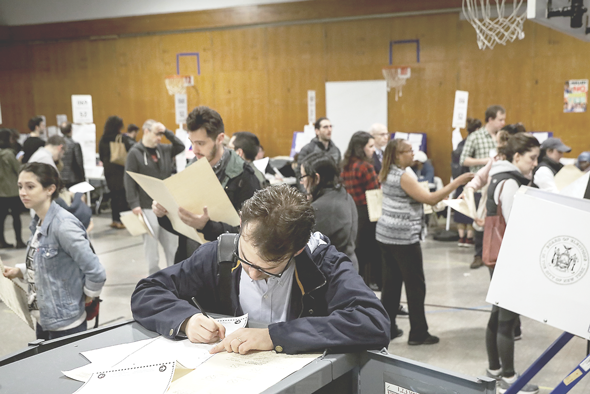
by Dennis Sadowski
WASHINGTON (CNS) — Rancor in politics, especially these days, may be the norm, but a nationwide effort is underway to remind people that civility in political discussions is a virtue.
The U.S. Conference of Catholic Bishops introduced the Civilize It campaign Nov. 3 at parishes around the country. It stresses that respectful dialogue — rather than name-calling and nasty barbs — can occur among people with differing political views.
“In part, this campaign is in response to the vitriol that we see in public discourse on both sides of the aisle,” said Jill Rauh, Director of Education & Outreach in the USCCB’s Department of Justice, Peace and Human Development.
“Civility is something that we, at least in theory, should all agree on,” she told Catholic News Service. “Catholics don’t always come down on the same side in terms of where they discern to be voting. But everyone should agree that we can be modeling love for neighbor and the example of Christ.”
The idea for Civilize It originated in the Archdiocese of Cincinnati in 2016. Its success in southwest Ohio caught the attention of the USCCB, which decided that the model, with a few tweaks, could be introduced nationwide.
The effort also will incorporate the U.S. bishops’ quadrennial document, “Forming Consciences for Faithful Citizenship.” The document remains unchanged this year, but the bishops will vote on a letter and four short video scripts to supplement it during their annual fall assembly in Baltimore Nov. 11-13.
The campaign’s cornerstone is a three-part pledge that individuals can take to respect civility, to root political views in the Gospel, and to encounter others with compassion.
The campaign “is a way the church can be an example,” Rauh said. “We can bring our moral voice to the public square.”
Civilize It also is part of a wider campaign known as Golden Rule 2020 being undertaken by the National Institute for Civil Discourse at the University of Arizona.
Cheryl Graeve, national organizer for the institute, said the campaign’s title is rooted in the widely held value among religious and non-religious people and Christians and non-Christians of “treating another person as you expect to be treated.”
“We’re increasingly concerned about the lessening of trust between people and government and for helping strengthen our democracy,” she said.
The program emphasizes the development of personal behavior to soften the angry rhetoric and harsh language that can emerge in any discussion about politics, explained Theo Brown, director of faith-based programs at the institute.
“The Golden Rule can help transform that hostile behavior. We’re trying to break the cycle (of incivility),” Brown said.
“Golden Rule 2020 encourages the fact that the foundation of our country and democracy is that a diversity of ideas is important for solutions and relationships,” Graeve added. “We’ve got to have the will to engage in those different ideas but from a place of common respect and common listening to each other.”
